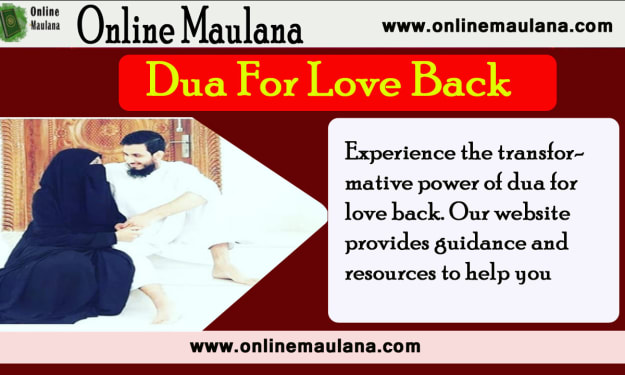Do You Rid Yourself of Toxic People When They Are Intimately Related to You
and You Love Them?

Several articles have come across my path with titles like, “7 Tips for Eliminating Toxic People From Your Life,” and “How to Eliminate Toxic People from Your Life and Be Happier,” and “Signs of a Toxic Person and How to Cut Those Toxic People out of Your Life.”
These all suggest how critical it is to remove a toxic person from your life so their toxicity doesn’t sabotage your growth and well being.
I agree.
But what if the toxic people in your life are the people you were born into — your immediate family?
That’s a tough one for many people.
I’ve struggled with this question for years.
It can be a sticky situation in larger families where a rift between two people can have a rippling effect on the entire family. So tread lightly.
There isn’t one answer for every circumstance.
But also remember that just because you share the same blood with your family doesn’t exempt them from hurting you.
The older I get, the more I’m OK with seeing certain people less, even though we share blood, to preserve my growth and happiness.
I understand how a toxic person presents.
I haven’t had trouble steering clear of them. I have mastered avoiding toxic friends and boyfriends because I’ve had so much practice dealing intimately with toxicity within my family dynamic growing up.
I witnessed it up close and personal.
I can see crazy coming from 100 miles off, and as soon as I recognize it, I cross to the other side of the street.
Other than the person my ex-husband chose to marry — a person I have to deal with — only because my daughter spends time in her company, I’ve chosen well when it comes to close women friends and the men I allow into my inner circle.
But my family (not my chosen family who are my dear friends ) but my actual biological family, the people I share DNA with can be Oh. So. Exhausting.
With the holidays quickly approaching, it’s that time of year, right before the on slot of the holiday season, when I find myself asking, how much time should I spend with my family during the holidays? Is any time required when it leaves me feeling emotionally depleted?
Family members have a unique way of triggering us, influencing our behaviors, making us overreact more than we do with our friends.
We can be completely calm, nonreactive, rational, and respected by our peers in the outside world.
Yet one visit with our family can send us into a prefrontal-cortex-monkey-brain reaction.
Soon we’re throwing turkey legs across the Thanksgiving table, aiming for our sibling’s head to take out an eye, because of one critical comment made to get under our skin, making us act like five-years-old again.
Members of my family actively oppose or are threatened by me trying to improve myself, to the point of sabotage via debilitating comments to belittle and cause harm.
My mother knows of my desire to write. Yet, the only comment she made after my ex-husband’s new wife sent out a mass email to my entire immediate family and close friends (she does not know any of them, nor has ever met them) detailing what a horrible mother she thinks I am, my mom’s first comment was, “she’s a good writer.”
When my mother says comments that hurt, the only thing I have is a loss for words.
I can’t fathom that she doesn’t know her comments are insensitive.
I mistakenly think if I don’t react to her words, then they don’t exist, and then they can’t hurt me.
Her words most certainly do exist. Do you know how many times I’ve thought about that comment since then, hundreds of times.
When I eventually bring this to my mother’s attention, because I can’t stop thinking about it, she either a) denies it or b) turns it around on me with, “You’re too sensitive,” or, “Oh that’s not what I meant, “or “You misunderstood me.”
Recently, a man who broke my heart in college friended my mother on Facebook.
My mom knows how I struggled to get over him for a long time post-break-up. Her first comment to me was, “He sure looks like he has a great life.”
I go into jaw-dropping shock when she says comments like this because I don’t want to think about what place in her mind and heart they’re coming from and why she is so insensitive to my feelings.
I have a daughter now, and I can’t imagine rubbing salt in her emotional wounds.
I sent my sister an article I was proud of writing a month ago, one of my sisters with whom I’m still in touch with consistently.
It is a relatively short essay.
And nothing. No response. No call. Not even a text, nothing. Nada.
I would have appreciated anything, even, “It’s not for me, but thanks for sharing,” or “I just got done reading, do you want suggestions?”
One article I read recently pointed out that people who belittle you or your aspirations think your improvement will expose their shortcomings.
Maybe this is true. Most toxic people are dealing with their insecurities and project onto you their negative thoughts and feelings. This is cold comfort when you are related to the person treating you subpar.
Not only does it not feel good to be around negativity, it certainly doesn’t make one rush to spend time with family members on any consistent or regular basis.
I have distanced myself gradually from my entire family, not from lack of trying to set boundaries with them and trying to have honest and thoughtful conversations.
When I have expressed explicit boundaries, they get crossed again and again.
Conversations with them about how their insensitive comments make me feel fall on deaf ears.
This makes me sad, but lately, the only real choice is to cut them out, not for good, and not entirely, but I don’t see them or talk to them nearly as much as I used to.
Ways to cope with a toxic family member
Create space — whether that space is physical or emotional or both. For practically, realize you may have to see a toxic family member at family reunions, weddings, or for the holidays, but that doesn’t mean you have to allow them to drag you down emotionally. You can have emotional space, without having physical distance.
Set clear boundaries — this is key and hard to do. First of all, wait until you are calm, and you’ve had time to reflect, so you minimize coming from a place of pure reaction. Come from a place of understanding and connection with the help of forethought. Meaning, reflect on what you want to say to the person who is negativily impacting your life. To maximize the chance of establishing boundaries and possibly maintaining a connection with a sibling, parent, daughter, etc. talk to them in “I” statements. For example, “I feel (fill in how you feel) when you made that derogatory comment about my business.” This comes with practice and patience. It is better to get it out there, then to sit on it and let a negative comment fester. Tell them under no uncertain terms is it OK for them to diminish you or your dreams, and if they continue to do so, you will have to limit time with them.
Keep your word — If you have set boundaries with family members and they continue to break those boundaries, keep your word on limiting time with them, so they know you are serious. It is true; you teach people how to treat you.
Choose healthy relationships outside of your immediate family — I have done this since I left for college, and it has made all the difference in my life. Find your tribe who you adopt as family members. People who lift you, and don’t demand perfection — we all have flaws and working on our flaws is healthy. Real friends will be supportive of your desire for self-improvement and reaching for your dreams.
Sometimes your family, no matter how much you love them and no matter how much energy you put forth into trying to get closer to them, won’t have the skills to give you what you need and deserve.
Realize that what toxic people impose on you via negative comments may not have anything to do with you, but may have more to do with how they view themselves.
Sometimes, they only know how to project their insecurities onto you.
Recognizing this will give them less power over you and your emotions, which allows you to accept yourself more fully and stand in your power.
Jessica is a writer, an online entrepreneur, and a recovering perfectionist. She lives in Los Angeles with her extrovert daughter, two dogs, and two cats
About the Creator
Jessica Lynn
Entrepreneur + Writer. I care about helping others learn to live a better, healthier life. www.thrivingorchidgirl.com.






Comments
There are no comments for this story
Be the first to respond and start the conversation.